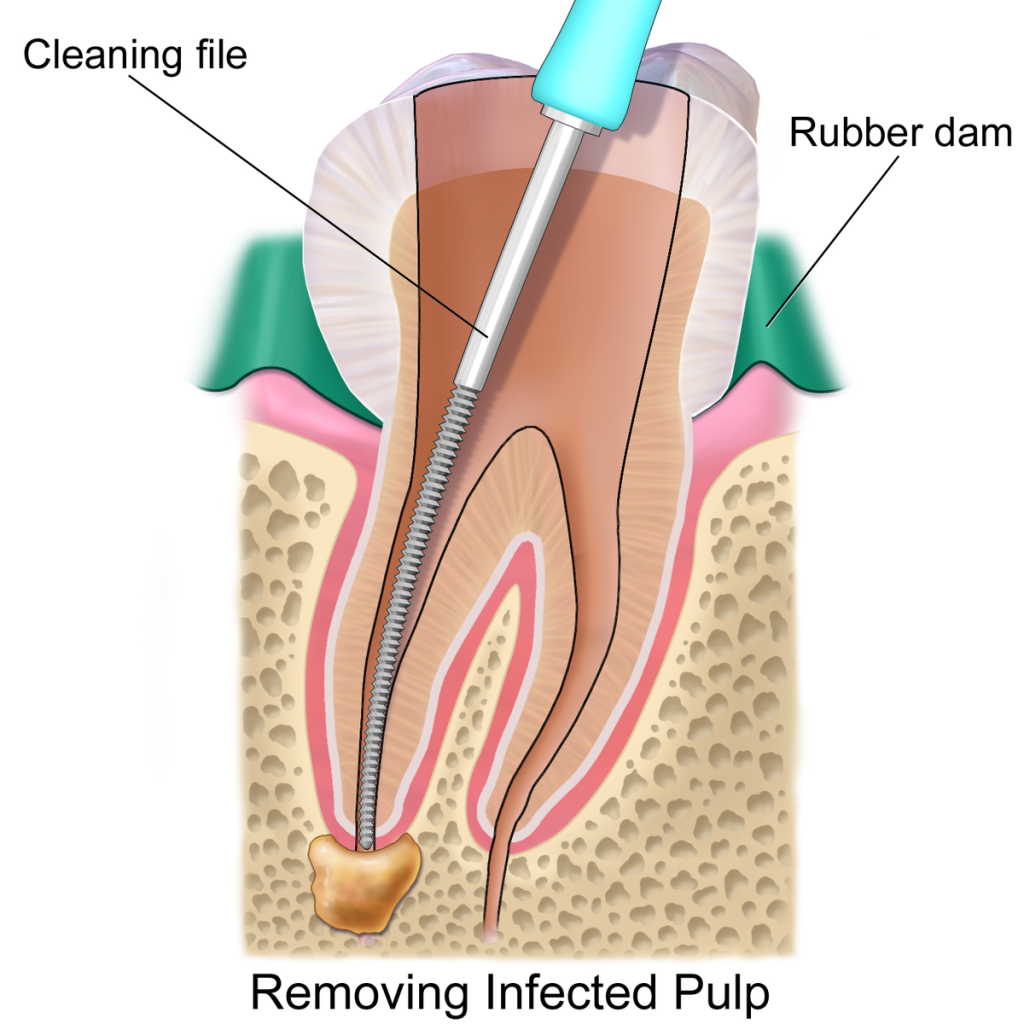- (212) 221-3691
- 526 7th Avenue New York, NY 10018
- (646) 723-2060
- 95-44 Queens Blvd Rego Park, NY 11374
Endodontics in Manhattan and Queens, NYC
At the office of PresiDental Care, we use the latest technology to provide precise and gentle care to help patients maintain healthy, beautiful smiles. Patient care and comfort are our top priorities, and you can rest assured your oral health is in the best of hands.
An effective way to preserve your natural smile
With a demonstrated success rate of well over 90%, root canal procedures remain the most effective way of saving and retaining a tooth that has been severely compromised by dental decay or injury. Because having a healthy natural dentition supports your oral health and overall well-being, root canal therapy, as opposed to having the involved tooth extracted, is a routine and widely recommended procedure. Across the United States alone, root canal procedures are routinely performed almost 41,000 times daily and close to 15 million times per year.
The importance of timely care
While some of the above signs and symptoms can indicate other dental problems, they all require prompt evaluation and care. In some cases, a tooth in need of root canal therapy has not yet demonstrated overt symptoms. It may first get diagnosed and brought to your attention following a comprehensive, routine exam. Typically, these teeth show radiographic evidence of periapical pathology (root end pathology) or other types of structural damage.
It is essential that when a root canal is recommended that you receive timely care. Delaying the procedure increases the risk of more widespread and severe symptoms developing. We can either use local anesthesia or more comfortable options such as dental sedation to make the procedure more comfortable for you.

The Root Canal Process at PresiDental Care
During a root canal procedure, our dentist will remove the diseased dental pulp, clean the internal portion of your tooth.
Then fill all the prepared canals with a biocompatible filling material.
Root canal therapy is typically performed under local anesthesia, but additional options in dental sedation are available to reduce any anxiety associated with dental procedures.
Until the anesthetic has completely worn off, it’s essential to protect yourself from unintentionally biting or injuring your lips, cheeks, gums, or tongue.




Why you may need root canal therapy
Your teeth are much more than just the hard outer biting surfaces and the roots. Inside each one is a central chamber containing connective tissue, a nerve supply, and blood vessels. Collectively, these core tissues, known as the dental pulp, help your tooth to grow and mature before it emerges into the mouth. Once your tooth is in place, the dental pulp provides nourishment, keeps the tooth vital, and alerts you of problems.
Pain is your body’s way of signaling that something is amiss. Although, there are many explanations for oral pain, one of the most common reasons is a toothache caused by decay or damage that has affected the tooth’s inner vital tissues. Patients in need of root canal therapy often report dental pain that wakes them up at night.
If the pleasure of sipping hot beverages or foods are overshadowed by dental pain that makes you wince, it's time to contact our office. Extreme sensitivity to hot or cold foods and drinks can indicate an inflamed, irritated, or non-vital dental pulp.
If it hurts when you bite and chew or when you just touch the tooth, it may indicate pulpal involvement, irreversible damage to the inner vital tissues of the tooth, or the presence of an infection.
A discolored tooth is often a message that the inner vital tissues, including the tooth’s nerve and blood supply, have been compromised. Teeth that have sustained an injury may demonstrate discoloration as the internal tissues have devitalized.
An injury that chips or fractures a tooth can also traumatize the dental pulp or even compromise so much tooth structure that a root canal procedure is required to save the tooth.
Swelling of the gums around a tooth may indicate that an infection has developed. While the swelling can worsen and cause more harmful consequences, sometimes a dental abscess starts to ooze pus and drain. In either case, prompt care is required.
The pathology associated with a tooth need of root canal therapy can damage the bone supporting the tooth and produce some mobility. Root canal therapy can often resolve this issue as tissue healing occurs.
Frequently Asked Questions
Endodontics is a specialized branch of dentistry that focuses on the diagnosis, treatment, and prevention of diseases and conditions that affect the dental pulp and the surrounding tissues. It involves procedures such as root canal therapy, endodontic retreatment, and apicoectomy.
You may need endodontic treatment if the dental pulp, which is the soft tissue inside your tooth, becomes infected or inflamed due to deep tooth decay, trauma, or other reasons. Symptoms that may indicate the need for endodontic treatment include severe toothache, prolonged sensitivity to hot or cold, swelling, tenderness, or a bump on the gums near the affected tooth.
During a root canal treatment, the endodontist will remove the infected or inflamed dental pulp from the tooth, clean and shape the root canals, and then fill and seal them with a biocompatible material. The tooth is then restored with a filling or a crown to protect it and restore its function.
The perception of pain during root canal treatment can vary from person to person. However, with modern techniques and anesthesia, most patients report minimal discomfort during the procedure. The goal of endodontic treatment is to relieve the pain caused by an infected or inflamed dental pulp, not to cause more pain. Your endodontist will take steps to ensure your comfort during the procedure, and pain management options, such as local anesthesia or sedation, may be used as needed.
